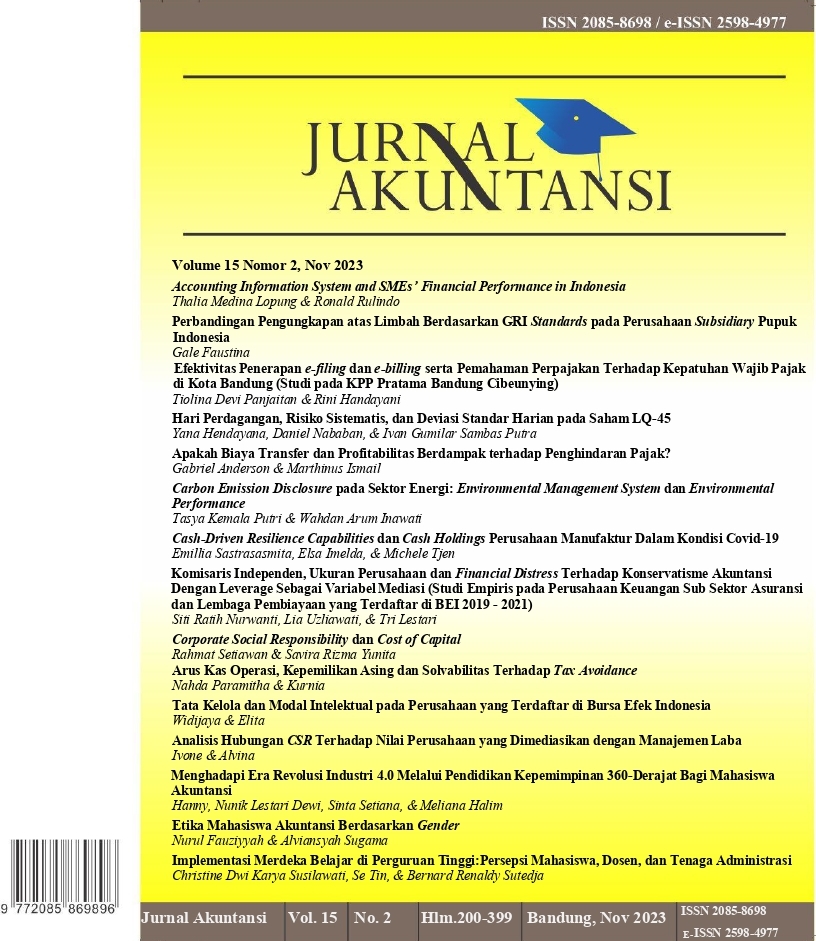Effectiveness of the Implementation of e-filing and e-billing and Taxation Understanding on Taxpayer Compliance in the City of Bandung (Case Study at the Bandung Cibeunying Primary Tax Office)
Main Article Content
Abstract
One of Indonesia's main sources of income is taxes. By putting in place an e-filing and e-billing system, the government is attempting to increase tax compliance. This study's goal is to determine how e-filing, e-billing, and a better understanding of taxes affect taxpayer compliance in the city of Bandung. Quantitative research methodologies were used for this study. Taxpayers who are registered with KPP Pratama Bandung Cibeunying make up the study's population. 100 individual taxpayer respondents that were enrolled with KPP Pratama Bandung Cibeunying made up the research sample. Multiple regression analysis was used in this study to test the hypothesis. The findings demonstrated that growing taxpayer compliance in the City of Bandung was not impacted by the partial adoption of e-filing and e-billing, and that it was impacted somewhat by the level of tax understanding. According to this research, it can boost socialization of taxation to the larger community so that they can better understand the necessity of taxation and improve system performance and public comprehension of e-filing and e-billing uniformly.
Keywords: e-filing, e-billing, Understanding of Taxation, and Taxpayer Compliance
Keywords: e-filing, e-billing, Understanding of Taxation, and Taxpayer Compliance
Downloads
Download data is not yet available.
Article Details
How to Cite
Panjaitan, T. D., & Handayani, R. . (2023). Effectiveness of the Implementation of e-filing and e-billing and Taxation Understanding on Taxpayer Compliance in the City of Bandung (Case Study at the Bandung Cibeunying Primary Tax Office). Jurnal Akuntansi, 15(2), 226–240. Retrieved from https://journal.maranatha.edu/index.php/jam/article/view/6082
Section
Articles

This work is licensed under a Creative Commons Attribution-NonCommercial 4.0 International License.
